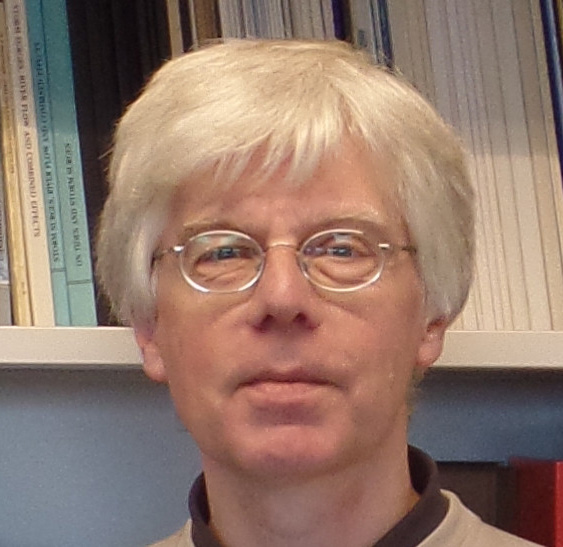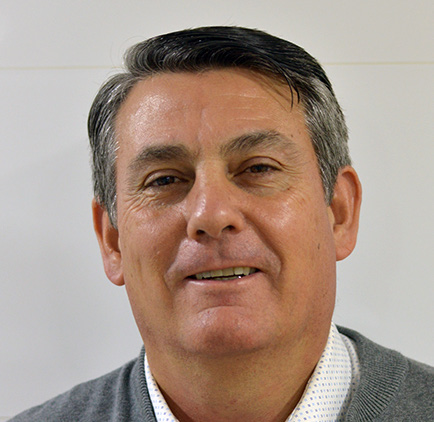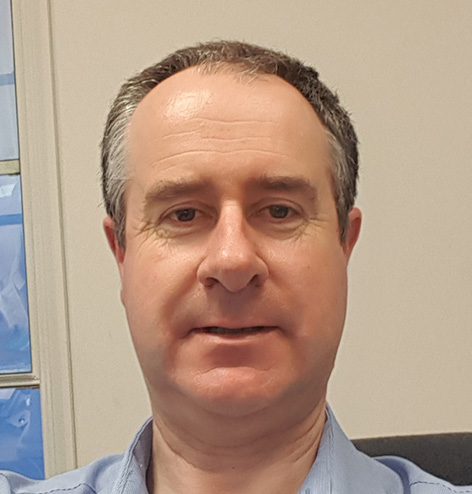A quarter of ECMWF’s supercomputing resources are made available to the Centre’s Member States. Of these, up to ten per cent are reserved for Special Projects. Member and Co-operating States also have access to ECMWF’s archive. Computing Representatives play a crucial role in authorising users in their countries – currently more than 3,000 in total – to access those resources. They meet once a year at ECMWF for updates on the latest developments at the Centre and to exchange experiences. Here three of them describe the benefits and challenges the role brings.
HANS DE VRIES
 I am a weather and climate modelling scientist at the Dutch national meteorological service, KNMI, and have been an ECMWF Computing Representative since 1997. I believe that makes me the longest-serving one. It all started when my boss asked me whether I could take the role over. I agreed and I’ve never looked back!
I am a weather and climate modelling scientist at the Dutch national meteorological service, KNMI, and have been an ECMWF Computing Representative since 1997. I believe that makes me the longest-serving one. It all started when my boss asked me whether I could take the role over. I agreed and I’ve never looked back!
Users based in the Netherlands make extensive use of ECMWF’s archives and use the high-performance computing facility (HPCF) to run the limited-area model HARMONIE, the KNMI regional atmospheric climate model RACMO, and the EC-Earth Earth system model. Many HARMONIE experiments and EC-Earth analyses would not have been possible without ECMWF’s HPCF.
I act as a central contact point who knows about access to the HPCF and has a fairly broad understanding of the possibilities. One of the challenges is to deal with the HPCF budget: it always seems too small at the beginning of the year but invariably turns out to be adequate in the end.
The Computing Representative meetings at ECMWF are very useful. They provide an opportunity to learn about the Centre’s plans and to talk to ECMWF staff, including members of the User Support team, and other Computing Representatives. Finding out what other countries are doing is always inspiring. My highlight from last year’s meeting was learning about ECMWF’s plans for a new data centre.
RAÚL CORREDOR
 I am the Head of Administration and Maintenance of Linux Systems at the Spanish national meteorological service, AEMET. I took over the role of ECMWF Computing Representative from a colleague nearly ten years ago.
I am the Head of Administration and Maintenance of Linux Systems at the Spanish national meteorological service, AEMET. I took over the role of ECMWF Computing Representative from a colleague nearly ten years ago.
It was a good move as it has given me an opportunity to participate in and learn from one of the world’s best centres in meteorology and computing science. The role has given me a much broader view of the state of the art in computing and helps me with my decision-making at AEMET. An important aspect is to give first-level support to users based in Spain, which is generally very gratefully received.
We run a lot of weather and climate modelling experiments at ECMWF. Currently our main application running at the Centre is the ensemble forecasting system Gamma- SREPS, which is being tested before it is migrated to AEMET's HPCF. ECMWF’s facilities were of critical importance to us between 2010 and 2015, when we tested and ran an operational suite of HARMONIE on them until the installation of our new HPC system was complete.
The annual Computing Representative meetings are perfect for collaboration and the exchange of knowledge. Since 2008 I have only missed one meeting. After each meeting I compile a report for users in my country and my organisation so that they know about ECMWF’s plans and where to find more information.
TOM DAILY
 I work as an IT manager in the Technology Division of Ireland’s national meteorological service, Met Éireann. Being the Irish Computing Representative is a small but important part of my job. Working at one of the smaller European meteorological services, it is great to be interacting with a world-leading organisation such as ECMWF and knowing that Ireland has a stake in it by virtue of being a member.
I work as an IT manager in the Technology Division of Ireland’s national meteorological service, Met Éireann. Being the Irish Computing Representative is a small but important part of my job. Working at one of the smaller European meteorological services, it is great to be interacting with a world-leading organisation such as ECMWF and knowing that Ireland has a stake in it by virtue of being a member.
Met Éireann users run many applications on ECMWF’s HPCF, particularly post-processing tasks. We are currently also operating our limited-area models at ECMWF. The MERÁ (Met Éireann ReAnalysis) climate reanalysis project, which was completed last year, was produced on the Centre’s HPCF too. The project was very successful and recently won an Irish Civil Service Excellence and Innovation Award.
Sometimes it can be difficult to devote as much time to the role as I would like. Keeping track of user accounts can also be a challenge. When I took over the role initially there were many dormant Irish user accounts and, with ECMWF’s help, I had to do some ‘spring cleaning’.
The Computing Representative meetings at ECMWF enable me to meet my European counterparts and to hear what technology each meteorological service is currently using. It is also very beneficial to meet our User Support contact, Paul Dando, as well as other ECMWF colleagues face to face. Last but not least, I enjoy the social side of the meetings!
May meeting
Once a year ECMWF hosts a meeting of Computing Representatives. The next such meeting will take place from 16 to 18 May 2018.
For more information on ECMWF Computing Representatives, visit: https://www.ecmwf.int/en/about/who-we-are/representatives.
For more information on Special Projects, visit: https://www.ecmwf.int/en/research/special-projects.

